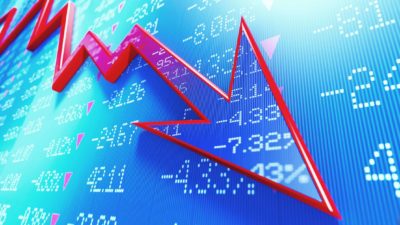This article was originally published on Fool.com. All figures quoted in US dollars unless otherwise stated.
This market is taking no prisoners. Whether you own shares of a newly public company or one of the world's most dominant technology enterprises like Alphabet (NASDAQ: GOOG) (NASDAQ: GOOGL), it's been a rough year. Specifically, Alphabet is down 35% from its high, its largest decline since the Great Recession (2007-2008).
But it's not just a market issue. Companies that advertise to make money, like Alphabet, are pointing out economic turbulence on the horizon and bracing for a more challenging operating environment. It can sound cliched, but leaning into the fear and buying Alphabet could be a decision you're bragging to your friends about when things eventually turn around. Here is why.
Advertising is becoming treacherous waters
Alphabet makes most of its money by selling ads on its two most popular internet platforms, Google Search and YouTube. Traffic is a vital part of that. The more eyeballs you have, the more you can charge for your ads. However, the total money companies spend on ads, which you can think of as a pie, can fluctuate in size. Companies might advertise more when the economy is doing well, and potential customers are spending more. On the other hand, ad budgets might shrink when the economy is doing poorly, and people aren't spending as much.
The US economy has already been slowing down. Gross domestic product (GDP) was negative over the past two quarters. Some view it as a recession already, but the worst might not be over. The Federal Open Markets Committee (FOMC), which sets the federal funds rate, the benchmark interest rate that determines what the rest of the economy can borrow at, is rapidly increasing rates to combat high inflation.

U.S. Inflation Rate data by YCharts
This affects the economy. You may notice that mortgage rates at your local bank have soared. Companies that borrow money must now pay higher interest on their loans. Rising rates make borrowing more expensive and reduce how much people and businesses spend. That lower economic activity means that advertising budgets are likely coming down. That pie piece that represents advertising spend may get smaller.
Broken stock, not broken company
You can see this play out in Alphabet's revenue growth over the past year, which has dramatically decelerated. Going from 40% growth year over year to 12% growth in four quarters seems like hitting the brakes pretty hard. But it's essential to understand the context behind this and ask: Is this because Alphabet isn't getting the eyeballs to charge for its ads, or is what companies spend on ads shrinking?

GOOG Revenue (Quarterly YoY Growth) data by YCharts
Based on the economic circumstances above, the pie is getting smaller. You can check advertising companies' landscapes and see similar growth collapses. Roku, for example, guided for 35% revenue growth for the entire 2022 year in the first quarter. But it completely withdrew its full-year revenue growth guidance just one quarter later due to economic concerns.
On the other hand, Alphabet's top two platforms (Google and YouTube) remain top traffic getters. A report for August from Semrush named Google and YouTube as the two top sites on the internet, garnering more than 23 billion visits in August. Facebook.com was third at just 5.5 billion visits, which shows just how large the gap is between Alphabet and the rest of the field. Investors can be reasonably sure that Alphabet's ad revenue will recover once the economy improves because its websites remain the dominant internet destinations where brands prioritize their ad budgets.
Enjoy the sale
The stock's decline remains a buying opportunity for long-term investors. Alphabet now trades at its lowest price-to-earnings (P/E) ratio in a decade and is well below its median P/E of 27. From a price-to-sales (P/S) standpoint, the stock has only been less expensive during the COVID-19 crash in 2020.

GOOG PE Ratio data by YCharts
Sure, growth may slow temporarily in this cruddy economic environment. Still, Alphabet remains a dominant business with a fortress-like balance sheet that includes $125 billion in cash against just $12 billion in debt. It seems this drop is market- and economy-driven and not due to Alphabet's fundamentals, making this a possible buy-the-dip moment for patient investors.
This article was originally published on Fool.com. All figures quoted in US dollars unless otherwise stated.









